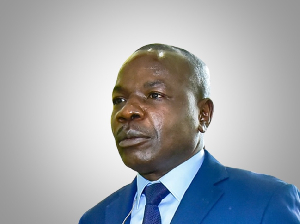All the countries of the region are stealing the show at Promote 2014 with diverse products.
The ongoing 5th edition of the International Exhibition for Enterprises, SMEs, and Partnerships, Promote 2014, is serving as a rare opportunity for the ten member countries of the Economic Community of Central African States (ECCAS) to showcase what they are capable of producing. In fact, their vast stand at Promote contains a bit of everything that one can find in the countries.
Here, visitors can find coffee in either raw of consumable form, chips made out of everything produced in the region, medicinal drugs and drinks, forest products as well as craft works. There is for instance, pure Arabica coffee from Burundi, Coffee made in Cameroon, parceled caterpillars from the Democratic Republic of Congo, bitter cola from D.R. Congo and mushroom from the forest and palm tree still from D.R. Congo.
According to Aristide Loembet, an official of the Department of Monetary, Fiscal and Economic Integration at ECCAS, Promote offers the countries the opportunity to showcase integration in practice. “We are here at Promote to accelerate sub-regional trade between ECCAS member countries. This is through representatives of different ministries of the region in charge of trade and integration and officials of the different Chambers of Commerce,” he said.
Mr Loembet told Cameroon Tribune that the selection of the participants was done in partnership with different Chambers of Commerce of the various countries. “We asked them to send us participants and ECCAS supported the different delegations to participate at this show,” he added.
In a chat with CT, one of the participants from Burundi, Francois Nkurunziza, Executive Committee Chairman of Intercafé Burundi said, “We are here to let the world know what Burundi has in terms of good coffee. Burundi coffee has high quality for people who know and need it. We produce between 20,000 and 25,000 metric tons of Arabica coffee per year.”
With his coffee tagged, “The Specialty Coffee Industry of Burundi”, Mr Nkurunziza said the time-honoured tradition of growing coffee by smallholder producers is now beginning to fulfill its potential as Burundi is on the path of producing Arabica coffee of the highest quality. He observed that amid growing political and social stability, Burundi has begun the process of liberalising the coffee sector through the sale of government-owned coffee processing infrastructure (wet and dry mills).
He disclosed that up to 2013, 30 per cent of coffee washing stations in the country had been privatised. “Currently, there are over 180 coffee washing stations among which almost half are privately owned,” he said.
His presence at Promote, like that of others from the region, is to create business contacts, share know-how and learn from each other so as to widen their business spheres and solidify regional integration for their mutual benefits.
Infos Business of Tuesday, 9 December 2014
Source: Cameroon Tribune












